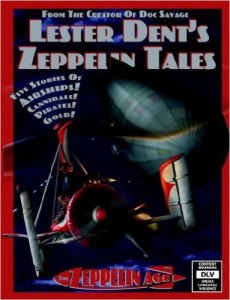I’m a reader turned writer, who still reads. Why? Because fiction is still my favorite form of entertainment. Not movies. Not computer games. Not TV. Not sports. It is a good book or short story. And because I like reading good stories, I started writing stories I would like to read. Consequently, I’m under no delusion that everyone will like what I write. I do know I will. And hopefully others will too.
So what do I like to read? I took a look through the BISAC subject heading list and came up with the following 10 genres/categories and listed a few favorites to go with each. The list is not exhaustive and the moment I post this, I’ll probably remember a delightful tale I forgot to include.
Action & Adventure
This is a broad category. I prefer my action/adventure to be a bit dark and touched with the fantastic or the supernatural.
H Rider Haggard so often fits the bill. King Solomon’s Mines is difficult to beat.
Robert E Howard in his short life wrote in a wide array of genres/categories. Some of my favorite stories feature his character Solomon Kane. Dark tales, touched with the supernatural, and with plenty of action.
Alternative History
I’m actually new to the genre, having come to it via steampunk. I haven’t read many alternative history stories and those I have read haven’t been overly memorable. The one I’ve enjoyed the most is Sydney Padua’s The Thrilling Adventures of Lovelace and Babbage.
However, the one story that does stick in my mind is not something I read. It’s the original Star Trek episode “Bread and Circuses”. A very fine alternative history story indeed.
Apocalyptic & Post-Apocalyptic
I admit I’m fussy when it comes to this genre. What I like is the cozy catastrophe, that sub-sub-genre which focuses on the aftermath of the disaster and what the survivors end up doing.
There are some notable classics here, such as The Day of the Triffids by John Wyndham and The Earth Abides by George R Stewart. Terry Nation’s book Survivors is disturbingly dark.
Fantasy
A very broad genre this, with many sub-genres. I confess I don’t read much fantasy anymore. I got burned out on all the magic and uninspired Tolkien rip-offs.
Generally I like my fantasy dark, sliding off into the horror genre, with a touch of the supernatural.
My all time favorite here is the gothic novel Dracula. However, I very much enjoyed Artemis Fowl. Very imaginative.
Ghost
Who doesn’t enjoy a good ghost story? One of the best I’ve read of late is Crispian Thurlborn’s A Bump in the Night. Very funny and philosophical.
Generally, though, I prefer my ghost stories over in the horror genre. One of the best is Robert E Howard’s “Pigeons from Hell” and he even includes a zuvembie, another name for a zombie.
Horror
I love a good psychological horror story with supernatural overtones. Slasher stories stay away. Can’t stand them.
Ben Willoughby’s recent contribution Raw Head is a well-done riff off of an old Southern legend.
One of my favorite stories is T.E.D. Klein’s “The Events at Poroth Farm” and the novel expanding on the story The Ceremonies.
Robert E Howard’s story “Black Canaan” is superb, as are so very many of his other tales. And many of H P Lovecraft’s stories are well worth re-reading, such as “The Transition of Juan Romero”, “The Call of Cthulhu”, and “The Shadow Over Innsmouth”.
My interest in horror goes all the way back to my elementary school years and a slim paperback of Edgar Allan Poe’s tales. Add to that Conrad Aiken’s “Silent Snow, Secret Snow” and Saki’s “Sredni Vashtar” and I was hooked.
Mystery & Detective
I’m very fussy when it comes to mysteries. In fact, I don’t like mysteries per se because I’m not all that fond of puzzles. What I like are detective stories, preferably private detective stories, with a little bit of mystery tossed in.
I suppose Dupin and Holmes are to blame for this bias on my part. After all, they are very often more interesting than the mysteries they solve! Quite honestly, some of Holmes’ adventures are not very good and how Poe could bore us with “Marie Roget” is a question worth asking. Nevertheless, Dupin and Holmes live on. They are eternal.
My favorite private detective is Nero Wolfe, created by Rex Stout. Wolfe and Archie Goodwin are my dynamic duo.
Noir
Cornell Woolrich is perhaps the noir writer par excellence. Rear Window is a modern classic. I don’t read a lot of noir. But if I do, Woolrich is first in line.
Science Fiction
Like fantasy, like mystery, the science fiction genre is huge, with many, many sub-genres. I tend to prefer space operas and harder sci-fi as opposed to science fantasy.
The Player of Games by Iain Banks and Men, Martians, and Machines by Eric Frank Russell are favorites. So is Groff Conklin’s superb collection of short stories Omnibus of Science Fiction, which contains one of the finest stories H P Lovecraft ever wrote “The Colour Out Of Space”.
Sea Stories
“I must go down to the sea again, to the lonely sea and the sky,
And all I ask is a tall ship and a star to steer her by…”
Masefield had it right. The lure of the sea and a tall ship, sails filled with the wind. The list of classics is endless. Yet, as much as I love sailing ships, I haven’t read any sea yarns for quite awhile.
The ones that stick in my mind are The Dark Frigate by Charles Boardman Hawes, The Narrative of Arthur Gordon Pym by Poe, and Conrad’s The Secret Sharer and The Nigger of the Narcissus.
Of course there are many more great stories I didn’t list. Share your favorites. I’m always on the lookout for a good story or book to read.
Share This!